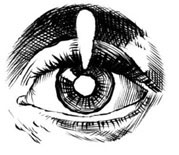
Never Let Me Go. By Kazuo Ishiguro.
LITERATURE MATTERS
Kazuo Ishiguro’s Never Let Me Go does not read like the typical dystopian novel, as it is often labeled, because it really isn’t one. Published in 2005, it’s a beautifully atmospheric love story — we even get a classic love triangle — about people who turn out to be clones bred as property of the British government’s “donations programme.” The clones’ ultimate purpose in life is to serve others by donating their vital organs, one at a time, until they “complete,” a euphemism for eventually dying of complications due to live organ donation. The most fortunate among them survive until their fourth donation, but most die after a second or third. That the main characters are all clones comes as a surprise well into the novel, not only to the unsuspecting reader but also to Kathy, Tommy, and Ruth, three students educated from infancy at Hailsham, an exclusive boarding school secluded in the bucolic English countryside.
The story, told by an adult Kathy, is a reflection on their discovery of the reason, meaning, and purpose of their lives as “donors.” As the narrative unfolds, it becomes apparent that none of the Hailsham students has parents or siblings or anything resembling a family. Their student years seem an unlikely hybrid of a co-ed Eton and a state-sponsored group home. Though Ishiguro makes the case that these clones are as human as anyone — they love, they backbite, they create artwork and even write poetry — they are denied basic human rights, forced into a utilitarian existence, and ultimately used as a collection of body parts to be harvested for the good of others. In many ways, it would be accurate to compare the Hailsham students to sheep being led to the slaughter. What’s truly ingenious about Never Let Me Go is that the world Ishiguro describes is not some far-flung future driven by fantastic technology still on the distant horizon; it is our own world — or at least recognizable as Britain in the 1980s and 1990s, a time of the Walkman and VHS tapes rather than smartphones and Netflix.
Madame Marie-Claude, a seemingly stern French overseer, visits Hailsham two or three times each year to select the best of the student artwork for her rumored “gallery.” Though Kathy and the others are never able to confirm the existence of an actual art gallery, the fact remains that it is “a most distinguished honour” to have one’s work selected for whatever Madame’s true purpose might be. And that purpose is the subject of great consternation through the years. When a student one day breaks an unwritten rule and asks one of the guardians why Madame “takes our things away,” all the guardian says is that “it’s for a good reason. A very important reason.” Though she’s not prepared to disclose to the students this good reason, the guardian says she hopes that one day it’ll be explained to them.
You May Also Enjoy
Here we review Cyborg Mind: What Brain-Computer and Mind-Cyberspace Interfaces Mean for Cyberneuroethics.
Endo seeks to foster and exemplify such religious concepts as sin, redemption, and resurrection in his characterization and plot.
Bernanos has much to teach us about the clerical state, particularly that being a priest is not really about power, unless it is the power of self-sacrifice.

